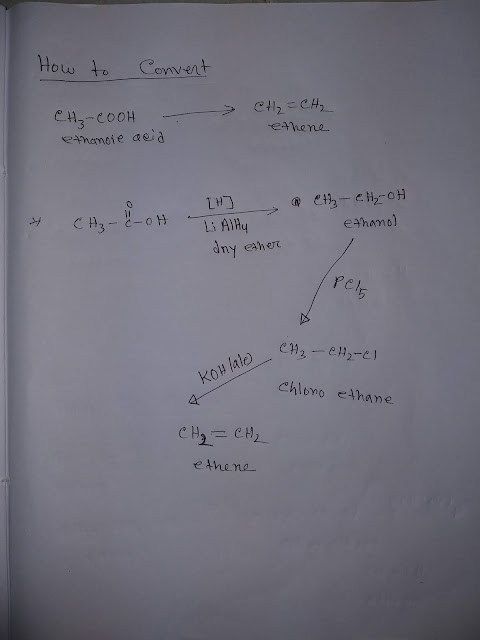[ ] Is NH3 (Ammonia) an organic or inorganic compound?
NH3 (ammonia) is an inorganic compound.
Explanation:
Firstly,we know that an organic compound contains carbon(C) and an inorganic compound may contain carbon.So NH3 (ammonia) is not a organic compound as it has no carbon.
Secondly,we know that an organic compound contains carbon-hydrogen direct bond(C-H) and an inorganic compound doesn't contain carbon-hydrogen direct bond.
In case of NH3 (ammonia) ,we do not get carbon-hydrogen direct bond(C-H).So NH3 (ammonia) is an inorganic compound.
Thirdly,we know that an organic compound contains carbon-carbon direct bond(C-C) and an inorganic compound doesn't contain carbon-carbon direct bond.
In case of NH3 (ammonia),we do not get carbon-carbon direct bond(C-C).So NH3 (ammonia is an inorganic compound.








Comments
Post a Comment